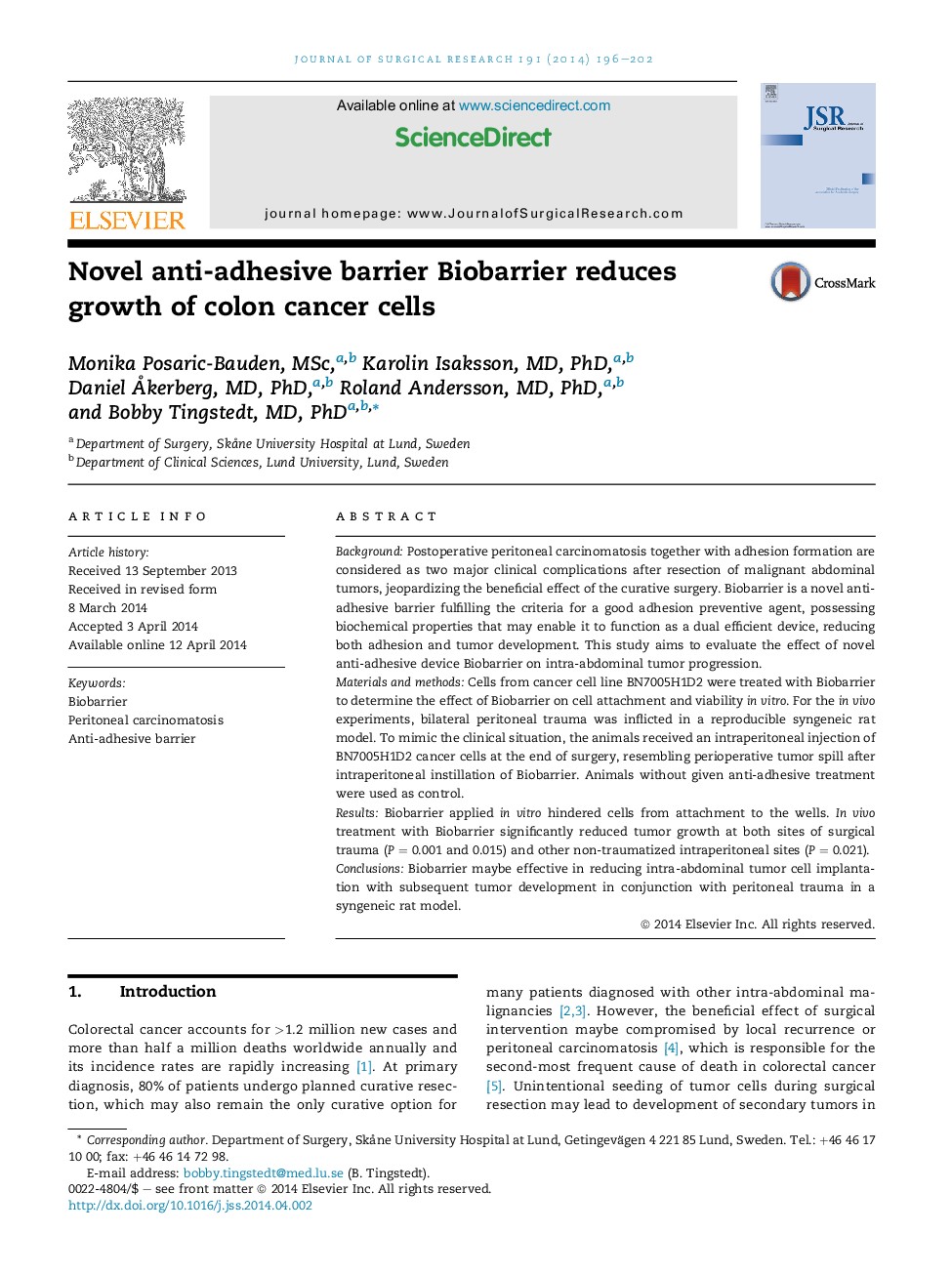| Article ID | Journal | Published Year | Pages | File Type |
|---|---|---|---|---|
| 6253852 | Journal of Surgical Research | 2014 | 7 Pages |
BackgroundPostoperative peritoneal carcinomatosis together with adhesion formation are considered as two major clinical complications after resection of malignant abdominal tumors, jeopardizing the beneficial effect of the curative surgery. Biobarrier is a novel anti-adhesive barrier fulfilling the criteria for a good adhesion preventive agent, possessing biochemical properties that may enable it to function as a dual efficient device, reducing both adhesion and tumor development. This study aims to evaluate the effect of novel anti-adhesive device Biobarrier on intra-abdominal tumor progression.Materials and methodsCells from cancer cell line BN7005H1D2 were treated with Biobarrier to determine the effect of Biobarrier on cell attachment and viability in vitro. For the in vivo experiments, bilateral peritoneal trauma was inflicted in a reproducible syngeneic rat model. To mimic the clinical situation, the animals received an intraperitoneal injection of BN7005H1D2 cancer cells at the end of surgery, resembling perioperative tumor spill after intraperitoneal instillation of Biobarrier. Animals without given anti-adhesive treatment were used as control.ResultsBiobarrier applied in vitro hindered cells from attachment to the wells. In vivo treatment with Biobarrier significantly reduced tumor growth at both sites of surgical trauma (P = 0.001 and 0.015) and other non-traumatized intraperitoneal sites (P = 0.021).ConclusionsBiobarrier maybe effective in reducing intra-abdominal tumor cell implantation with subsequent tumor development in conjunction with peritoneal trauma in a syngeneic rat model.
